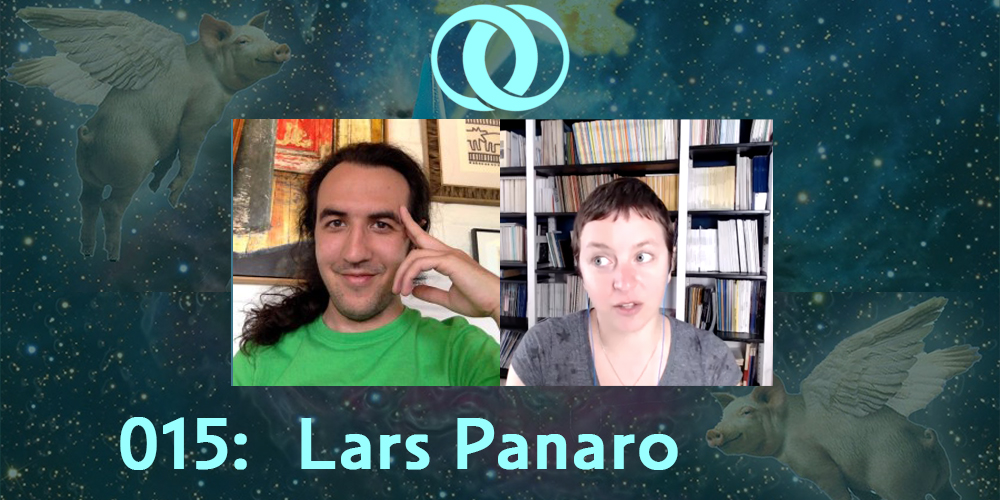
Astrologer and musician Lars Panaro sits down with CAELi’s founder, Jenn Zahrt, for a wide-ranging chat: from astrology and music, to flipping the zodiac, to cookbook delineations, to Dorotheus’s sibling technique, to Mars and theology (do they go together?), to hope and lack as two sides of the same coin. All that, plus: the Lot of Absence, being in the trenches, and… are we all being hazed by the past??
Visit our bookshop.org page to support CAELi and purchase books mentioned on the show!
Love the show? Support our work with a financial contribution or book donation.
Follow CAELi on FB, IG, and YouTube.
Read a full transcript of this episode.
Song “Wake Up” used with permission by The E-Block Band.
*****
Episode timestamps (conversation recorded June 2023):
00:52 – Welcome, Lars! Lars found astrology when he was pursuing a degree in guitar performance. (And check out his band, Karmic Ashes!)
02:32 – The first astrology-reading connection that Lars made was via the Dane Rudhyar archival project, which included info on traditional and modern planetary rulerships. This led him to Rudhyar’s book The Pulse of Life: New Dynamics in Astrology, which he devoured in two days! Lars loved how he understood the signs so deeply after reading this text.
07:24 – If Lars were in Antarctica and could only bring three books, what would they be? First up: The Lunation Cycle: A Key to the Understanding of Personality by Dane Rudhyar. (You’re probably looking at the Moon a lot if you’re stranded, right?) This book captures something profound about cycles and time.
08:27 – Next, Lars would take along A To Z Horoscope Maker and Delineator by Llewellyn George. This is a modern, twentieth-century pick with roots in traditional astrology.
18:54 – Visit our sponsor: The AstroMagia Online Conference hosted by JD Kelley (November 16-18, 2023)!
19:53 – Finally, Lars would carry Persian Nativities by Abu Bakr al-Hasib (the Dr. Dykes translation), because he finds insights in this text not found elsewhere!
28:52 – Which books for beginners would Lars recommend? First, the previously mentioned A To Z Horoscope Maker and Delineator. Also, The Practice of Astrology as a Technique in Human Understanding by Rudhyar because it’s short and sweet. And two by John Frawley: The Real Astrology and The Real Astrology Applied. (Also, Frawley’s book on horary astrology if that’s of interest to you!)
34:18 – Thanks for listening to Within Orb! If you love the show, please help support it at no cost to you: Follow or subscribe wherever you listen, rate it five stars, or write a happy review! And if you’d like to become a CAELi member or support our work with a contribution of any amount, we’d be delighted – thanks!
Show notes by Jen Braun, JJ Boots Productions LLC.
Transcript, Episode 15: Within Orb
Jenn Zahrt 00:03
Welcome to another episode of within orb and I am here today with Lars Panero. Who I met actually years and years ago editing the ascendant Volume Two which is the journal for the Association for young astrologers. And meanwhile, you and I have worked together on some articles for the mountain astrologer haven’t we?
Lars Panaro 00:51
We have Yeah, that’s been great.
Jenn Zahrt 00:53
So what else should we know about your work in astrology before we dive into the books, Lars?
Lars Panaro 00:58
my work in astrology emerged initially when Uranus was transiting my sun, and it was that whole Uranus Pluto square. So that was also involved. And for those who don’t know, I have a degree in guitar performance with an emphasis on classical guitar and electric guitar. And at the art school, I was attending California Institute of the arts. The art professor there at the time was a professional astrologer, she was a direct student and friend of Francis McEvoy, who helped start the NCGR, and she turned me on to astrology. And to Dane Rudhyar, who is like, still kind of my biggest influence today. And she was like, we were sort of becoming friends. And I went to her astrology class, which Yeah, you could take this astrology class for college credit, which was cool. It was very informal, but I just went and like went by. And she’s like, “alright, Lars, did you want to read your chart?” And I’m like, “what? Yeah, what is this?” And so she puts it up and she looks at it. She’s like, “Whoa, you’re going through, like, a huge change in your life. Like, nothing seems the same. Everything seems…” you know, she starts describing this. And I’m like, “what, that’s exactly what I’ve been thinking about. Like, that’s, you know, how do you know that?” And she’s like, “well, Uranus is transiting your sun and this other stuff and blah, blah, blah.” And I’m like, “Okay, I have to study this. Maybe this is the key to what is going on in my life.” And it was a tremendous shift. I mean, I literally shifted from having my life being all about music and performance to being like, honestly, mostly about astrology for a while.
Jenn Zahrt 02:32
So when you took your deep dive into astrology, what was the first book that you read?
Lars Panaro 02:37
So the first book I read, because I was really trying to understand the Zodiac at the time, I couldn’t wrap my head around it. I kept trying to like, Okay, wait, wait. Sagittarius is that arrow, one. Capricorn looks like a weird triangle. The heck is going on? Like, what do these mean? It doesn’t make any sense. Like all these people are listing these qualities. So I had initially read an article by Dane Rudhyar called khaldea.com… archival project or something like that. It’s still up today. It’s run by Michael R. Meyer, the author of the humanistic handbook.
Jenn Zahrt 03:10
which is a great book in itself. Yes.
Lars Panaro 03:14
Yeah. So that’s a great website. And it’s spelled K-h, and so on. We could, I don’t know, like, list it later or something. But so I was on that website. And I read like an article on traditional and modern planetary rulerships that really appealed to me, because it talked about what so many of us getting into traditional astrology are like concerned with but this was like, 60 plus years ago that he’s talking before that revival. So then I found on that website, his book, The pulse of life. It was like, you know, the blurb was something like, “Rudhyar takes you through all 12 signs and like, explains it in terms of a cyclo-cosmic conceptual model.” And I was like, Okay, let’s try this. And I read the book in like, two days, like I was so enthralled with it that I read for like three hours straight the first night and maybe three hours the next morning.
Jenn Zahrt 04:04
Yeah, so I have a few copies here. And it’s not that thick of a book. And it has very beautiful covers. There’s like a blue cover with almost these Aquarian water waves on it. It would have been cool to do like a cardiogram, right? Pulse. And then there’s a hardback edition that’s got the whole Zodiac on it as well, like this letter pressed into the cover. So two days.
Lars Panaro 04:26
I just I couldn’t put it down. And I was deeply enthralled. And what I loved about the book was that it presented the signs and the qualities of the signs in such a holistic way that after reading it, I understood all the signs like it just it clicked. It was no longer like, wow, why are there all these random qualities, you know, like, what are people saying cancer is shy and a homebody? Why are people saying you know, Capricorns are like a workaholic? You know, why, why, why? And it’s like, oh, it’s all about the cycle of the seasons and really more of a change in light, you know, following the equinoxes and solstices. it’s like okay, In this time, the light the days are getting longer and the sign the days are getting shorter and so on.
Jenn Zahrt 05:05
Yeah, but when you say that, that makes me think about the differences in the northern versus southern hemispheres, and I heard you say earlier tropical versus sidereal zodiac, so, you know, astrology did develop in the northern part of the world. So how do you make sense of applying it to the southern hemisphere?
Lars Panaro 05:22
there’s a curious piece of information, I discovered that I think almost 90% of the world’s population is in the northern hemisphere, really. So like 80 to 90%. It’s like an absurd number. And astrology was indeed developed in the northern hemisphere, you know, in an ancient time when this wasn’t their concern, and maybe they just didn’t know about it. I do think there’s something to be said for like, especially in the modern day with, you know, almost every country in the world is being heavily influenced by for lack of a better term, the West, right, the United States, Europe. And so I think there’s something to be said for like this, you know, collective consciousness, collective unconsciousness kind of model. But of course, that’s a little bit of a cop out. Just throw that out there. But it’s kind of like consciousness is definitely not as neatly divided in these ways as we would like it to be. if you think about it, too, there are a lot of people also in the southern hemisphere with ancestral roots in the northern hemisphere. I mean, just think about colonialism to begin with. It’s kind of staggering. But I do think there’s something to be said for flipping the zodiacs, so to speak, like flipping the equinoxes and solstices and the signs, and Rudhyar actually mentioned that a long time ago in one of his books, and it always intrigued me. And actually, now we have a colleague, you might know Mr. Theo.
Jenn Zahrt
Yes, yes, I was about to mention him.
Lars Panaro
just a shout out to him. I think he’s doing some excellent work with that concept, flipping the Zodiac because he’s in South Africa. So he’s below the equator. And so, so I couldn’t like a better person to take on that project. But I still think the seasonal kind of approach with the dark and light is really one of the best ways, if not the best way to philosophically understand why these signs are what they are.
Jenn Zahrt 07:09
Yeah. And then when you think about the concept of antiscia, I always like to go back exactly to that seasonal concept, because you have on either side of the solstice points, this image of the way the sun is hitting the Earth in that one place
Lars Panaro
Right.
Jenn Zahrt
So if you were going to be stranded somewhere on this wonderful planet, maybe we’ll stick you in Antarctica today, which astrology books would you pack in your bag?
Lars Panaro 07:37
Lunation cycle and horoscope delineator by Llewellyn George and then Persian Nativities by Abu Bakr.
And the reason I chose these is because there’s something about the lunation cycle by Rudhyar, that I don’t know, it just captures something very profound about cycles and time. And of course, if you were really stranded, and you like very little, you might just end up looking at the moon a lot, you might just end up really focusing on the moon. You know, and that’s kind of, in a lot of ways ancient astrology is much more lunar, it seems to me, because you could look at the moon and be like, oh, yeah, it’s next to this lunar mansion, or these stars, or whatever. And so this is a good way to do this, or need to avoid this on this day or whatever.
Now, assuming I had more tech, the horoscope maker and delineator by Llewellyn George, which I actually discovered fairly late in my astrological career, I just really like it because it gives you like, a lot of the essentials and even like a lot of the mathematics but then it very systematically goes through like every planet, in every sign every house, every major aspect. And it’s funny because even though this is a modern 20th century text, it is clearly a text that has some kind of roots in traditional astrology, it’s almost like a point in astrology is history where we’re like transitioning from a classical perspective to like a more modern perspective. So if you read his delineations, they’re very akin to like, something you might find in William Lily, actually. And there’s even an example in the book that delighted me where he was like, “oh, yeah, like I used for example, this technique of the 12th house to, you know, the 12th Lord was like, in the first house, and it was combust, and something else was happening. And, you know, I looked at the chart, and I told the person that they had killed somebody once, but it had never been discovered.”
Jenn Zahrt
Whoa!
Lars Panaro
Yeah. And the person was like, their client apparently was like, “Yeah, that’s true!”
Jenn Zahrt 09:41
Well, now your astrologer knows right? Like, the power of astrology.
Lars Panaro 09:47
So this book, which is like this big black and white book, the cover actually looks in my edition, the cover looks like a an old horoscope from like the Arabic and Persian astrologers. It’s those triangles and it’s black and white, alternating signs and you know, mine has this nice wine stain on it from just, you know, wine and astrology and things like that
Jenn Zahrt
Living the good life.
Lars Panaro
Yeah, living the good life, you know, I actually have it like next to my chair most of the time, because I just really enjoy picking it up here and there and looking at it. So it’s like, it’s just very clear and concise. And I feel like in some ways, it’s a little better than a lot of medieval texts for the cookbook. delineations it gives because it takes into account like the emerging modern world of it, you know, so you do have like, Uranus, Neptune delineations that are actually predictive in nature, like what kind of professions will the person have with Neptune, or Uranus because this is written before Pluto was integrated, right? He mentioned Pluto, he like lists things. But unfortunately, Pluto is not well integrated comparatively. So I just liked this book, because it’s like a pure dose of astrology. It’s not necessarily like in one camp either, right? I wouldn’t call it humanistic. But I wouldn’t say it’s antithetical to humanistic astrology. And just like I wouldn’t call it pure classical, but it’s not antithetical, right? That nice segue kind of deal.
Jenn Zahrt 11:14
So what’s your take on reading cookbook delineations? When you have, quote, unquote, “real astrology” under your tool belt?
Lars Panaro 11:21
I used to be really critical of that when I was younger. And over the years, I, what I realized is that sometimes you just need something to like, get you unstuck from an astrology problem. And I oftentimes read these cookbook things just for fun, just because I’m like curious like, oh, yeah, like, well, what does so and so say about like a Mars Neptune thing? Just one. And sometimes I find stuff and I’m like, Oh, this is great. That’s really insightful. And I might develop something from there. Other times, I’m like, well, that’s not really hitting any nails or whatever. So it gets my astrological brain going. And if I’m having a really hard time, on a client’s chart, again, I may consult for something like that. Just to like jog my astrology memory, in a way, like, oh, yeah, that’s right. I forgot that. You know, there’s like, obscure things like in Bonatti. There’s a passage where he mentions Mars refers to theology. Okay, and this is just something I committed to memory because it intrigued me. Yeah, no, I’ve never heard that before. Right. And it’s like, why, why the hell would Mars refer to theology? And the only reason I could think is maybe he’s talking about the argumentative nature of theology, where it’s kind of like probing and prodding. And there’s argument. I think we forget that.
Jenn Zahrt 12:41
Well, also the idea of a mission, right? We say Mars is related to mission. And people are missionaries, and travel is dangerous. And here you are going off into uncharted territory, trying to convert people. I mean, that is martial, right?
Lars Panaro 12:55
Very martial. It’s good to read these types of things. Because sometimes you find like gems like that. And then you’re like, oh, that does make sense. Okay, like, and it might relate to a chart you’re working on, it might not.
Jenn Zahrt 13:06
What I also hear you saying then is that even in earlier, classical texts, when you hit the cookbook spot, you’re really getting aphorisms that you can put in your databank, your personal collection of things to look for when they come up again, right?
Lars Panaro 13:21
Yeah, you’re getting aphorisms, and I really believe these old texts. First of all, I want to say like, I’ve talked about this with a few friends. I think a lot of these old texts leave out more than they mention. I think there’s an oral tradition that has been lost in classical astrology, at least in the West. Second of all, is they taught by these aphorisms and extremes. These old books are very extreme. And what they do is it’s kind of like, it’s like a weeder class. Like when I first went to college and took music theory, it was like, Okay, guys, five days a week at like, eight in the morning. You know, fuck you. Like, it’s just like a weeder course it was.
Jenn Zahrt 13:57
So wait, you’re saying the revival of traditional astrology is: We’re all being hazed by the past?
Lars Panaro
In a way. Yeah.
Jenn Zahrt
Oh, my gosh. Like, if you can hang, you’re cool. And if it’s too much for you, then go back.
Lars Panaro 14:11
Yeah, yeah. I mean, that’s like what, you know, you read these things and like Firmicus and Valens about, you know, the astrologers oath and like, do not reveal this information to anybody who’s unworthy of it. So you read these things in there. And like, I mean, I’ve known a lot of people who are like reading them, and they’re like, well, but that’s like, you know, it doesn’t necessarily have to mean that I’m like, I know, people that have this in their chart and it’s dead on. life is a lot messier than we want to make it in the modern age. So but it’s okay, because they still are extremes. And so the idea is like, you read these cookbook delineations whether it’s Firmicus or Bonatti, or whoever and you’re like, what’s the logic in here because they’re not telling you the logic always. Bonatti doesn’t say Mars refers to theology because, right? What we just did together is like we just filled in all the gaps as best we could.
Jenn Zahrt 15:04
Which might have been a wrong way to get there actually, because maybe in Bonatti’s mind, there was a whole different reason why. We’re just, you know, trying to enter that interpretation through our current positions.
Lars Panaro 15:17
Yes. And I think that’s wonderful. Because then what we’re doing is we’re developing critical thought, and it’s okay to disagree with classical authors and classical approaches. I mean, any good practicing astrologer will find the best way to do something for them, in the sense of it, like this technique over here, like I remember going to like birthdays and trying out some techniques about predicting siblings. And I was like, this does not work. I mean, not for me, not for a few my friends. Like, I don’t know what he was smoking here when he wrote this. Again, maybe there’s that oral part that’s left out? We’re missing a piece of it. I don’t know. But I do know that I’m not afraid to be like, I don’t agree with Dorotheus about this.
Jenn Zahrt 15:59
Sure. I mean, there’s enough of us living astrologers who don’t agree with each other.
Lars Panaro
Exactly, certainly.
Jenn Zahrt
And if you’re at the celestial arts education library, where I am right now, recording with you, this room is loud. the books themselves are sort of screaming across the aisle at each other. You’ve got 12 feet of shelf space for Noel Tyl, and he’s saying malefics don’t exist. And traditional astrologers are screaming at him, like, Are you kidding? You know, but yeah, and then another thing I love hearing in what you’re sharing is that it takes a long time to know what’s missing in your digestion of astrological texts. Meaning, you can read what’s there and learn. And then after a certain point, there’s a pivot and a kind of realization that something’s not here. And learning how to see what’s not present and what’s maybe not being shared, even though there’s things that are written down. But after practicing, and engaging, and sharing with friends, and trying Dorotheus, his siblings technique and having it fail and realizing something’s not here. And I remember when I had that experience when I was falling in love with German Astrology of the 20th century. And then at some point, after learning enough traditional techniques, I looked back at what I had been reading and was like, “Oh, they didn’t talk about this. They didn’t talk about that. What they are talking about is this.” But there’s this whole other segment of astrology land that’s not present here, in a certain way, or that is present, but not translated into English. And so you start to learn how to see what’s not there, which is I think, I guess what the next step is or something,
Lars Panaro 17:32
right, because in that context, didn’t Vita read a lot of the ancient texts like Firmicus, and Ptolemy, and whoever, whatever else was available?
Jenn Zahrt 17:41
Well, he couldn’t read modern texts, because they also weren’t written yet. So I mean, we have to remember he was somebody who was trained as a typographer sitting in the trenches in World War One trying to time when the next bomb was gonna go off.
Lars Panaro 17:52
Amazing. Just amazing.
Jenn Zahrt 17:54
Yeah, I would love to ask him. “So if you’re in the trench…” Maybe I’ll ask that to the next interview, “What astrology books would you bring with you to the front?”
So he came up with this very fine-tuned arc distance mathematics, which actually has its lineage back in Kepler, because Kepler said, “I don’t know the difference between where Aries ends and Taurus begins. Nature doesn’t show us a sign boundary in the tropical zodiac. it just doesn’t exist. I can’t see it with my telescope. It’s very materialistic in that sense.” And so he’s also trained as primarily a geometer. And so the geometry is looking at these arc distances versus the more traditional way of thinking of the planets as entities who have their own body space and that the sign itself I think of it as an elevator and so there’s this territory of that he goes beyond that into pure math. And Vita takes it a step further with these arc distances because then he can account for the intervals between bombs basically, using this.
Lars Panaro
That’s amazing.
Jenn Zahrt 19:53
So yeah, okay, so you’re still stuck in the middle of nowhere we’ve looked at the lunation cycle because the moon is obviously your best friend now and you’ve got your horoscope maker and delineator. And then you also mentioned one more, which was Abu Bakr’s on nativities. I don’t have that at the library. What is this book?
Lars Panaro 20:12
I have it in here in Ben Dykes’s Volume Two of Persian nativities. The reason I love this book and the reason I chose it is because it’s one of the only medieval books I’ve found where he goes into like virtually everything. It’s like absurd. It’s like so Book Two on topics: on the natives morals and his nature; on him who has anxiety; on the natives quickness to wars and rage; on the natives humbleness; on his shamelessness; on The shame; on the morals; on lies; on truth; on religion… And that’s just the first part and then when he gets to professions, it’s just like everything. So dominion and mastery and then going down a bit on natives who are Weaver’s; on natives who are Sowers; Natives who are commonly laborers; on natives who are carpenters, painters, sculptors, dyers, diggers, sailors, craftsmen, medical doctors, surgeons, and on and on and on and on. He devotes like a little bit of time to all these things. Same with death, same with disease, and so on. And so, there’s something really magical about this text, like every time I pick it up, it’s not even always that it’s like dead on or anything, there’s just insights here that you don’t find anywhere else. And there’s even like a wonderful part on the lot of spirit that’s very insightful, where he uses it to, like, judge the profundity and depth of the person’s thoughts and like, whether they’re truthful or profound or not. And he goes into like, he calls it a lot of absence. And he goes into like, a lot of absence means this, but it’s Lord means this kind of a thing. Like if the lot looks good, the person may sound really wise. But if the Lord’s deeply afflicted, then they’re just kind of like foolish.
Jenn Zahrt
Oh, no!
Lars Panaro
So it’s one of those invaluable books. Again, it’s not like I’ve read the whole thing, and like, meticulously gone through, like 1000s of charts trying to apply his his ideas, but it gets you thinking,
Jenn Zahrt 22:05
well, that’s what you get to do. And you’re stranded with it, right? I mean, that’s why you’re going to take it with you.
Lars Panaro 22:09
Yeah, assuming I have a computer and 1000s of charts to look at. I still somehow have internet or something…
Jenn Zahrt 22:15
Yeah, well, everybody gets to bring the ephemeris. That’s a given.
Lars Panaro 22:20
So, okay, cool. Cool. Yeah, yeah, that is definitely one of my favorite older texts.
Jenn Zahrt 22:23
So why does he call it the lot of absence versus spirit?
Lars Panaro 22:29
I think because either he says it or maybe Bonati says it or somebody says it, right. It’s like something like, and it has significations over things that are like more over things that are absent or not present than things that are obvious and present.
Jenn Zahrt 22:43
So spirit referring to something like the imagination versus material reality?
Lars Panaro 22:48
Yes, like things hidden things yet to come. So like prophecy, and things that are kind of arcane.
Jenn Zahrt 22:55
I wonder if the word absence in Arabic sounds different than English, because in English, there’s this impression of a lack, or something missing, as opposed to the nonexistence of a thing. It’s almost like by proposing that there’s something absent than it was present, and now it’s gone. There’s then an immediate loss or a nostalgia experience versus a hopefulness of something becoming that isn’t there yet.
Lars Panaro 23:20
Right. That’s a good point. And I don’t remember if this particular edition is translated directly from Arabic, or from a Latin edition, that would be something for people, you know, you can just go to Ben Dykes’s website.
Jenn Zahrt 23:31
Yeah. Because doesn’t spirit have something like hope attached to it? but I suppose hope also has a fundamental lack, because if you’re hoping for something, it’s not there yet.
Lars Panaro 23:41
I guess it could have hope attached to it. I haven’t seen that myself. I mean, that would make a certain amount of sense, just logically. because it’s kind of like Robert Zoller put it like this. He was like a lot of spirit is sort of like the god the native worships whether they know it or not, it’s like their highest conception of God. And I kind of expanded that to mean like, what is your deepest intent in life? Like, what is your guiding sort of star spirit? Like, what is that thing that you that you need or want to do from like the depths of your heart? It’s not like you’re trying to do it to make money or because your parents wanted you to do it or because you’re going to be happy, but it’s like, you’re, you’re obsessed. You’re like, I don’t know why. I mean, for me in college, it was like, I don’t know why, but I have to play guitar and I have to learn this particular piece of music. Like I can’t sleep until I like learn this or whatever, start learning it.
Jenn Zahrt 24:33
Do you still play guitar?
Lars Panaro 24:34
I do. Yeah. Not quite as much as I used to. But yeah, it’s still an important part of my life
Jenn Zahrt 24:39
has astrology crept its way into your music in any fashion?
Lars Panaro 24:43
maybe in some way, like really indirectly. My brother and I put out an original album of like, for lack of a better term, like progressive death metal, and it’s on Bandcamp. The band name is karmic ashes, if anyone’s interested. Oh, my brother’s getting his PhD in Iceland in Norse studies and so like a lot of concepts of like nordic mythology and esoteric thought and things like that, like made their way into the lyrics and of course, as a as a creative type as an artist, like I feel like everything I do is an inspiration to everything else. So I think just astrology in general kind of factors into everything I do, even if it’s not obvious. Sure, none of the songs are about astrology or about like, the planet.
Jenn Zahrt 25:27
No, no, what I’m thinking is using your knowledge of cycle of pattern and qualitative change through the ways that astrology techniques bring into focus certain kinds of mathematics that might have influenced your songwriting somehow.
Lars Panaro 25:41
I actually, I’m kicking myself right now, because I just remembered my senior recital was, was a structured improv based on the zodiac. So that’s the most direct way… I forgot about that, like, because it was so long ago. And that was really fun to put together that was when I was just like a baby astrologer really into Rudhyar. I put together like each movement had like a motif and kind of like rules of like how to improvise in it. And then I it was like, I had two other friends playing on it. So it was like an each part it’d be like, starting with Aries. It’d be like a solo, then a duo with Taurus, and then a trio with Gemini, and then that cycle would repeat in each of the corners. So that was cool. And then I have thought a decent amount about how we can think about like, music in terms of astrology or astrology in terms of music, like getting into the music theory, like there’s seven degrees of the scale of a typical scale in western music. And so you have seven planets, right? You have 12 notes, and I know people have tried to do that a little bit,
Jenn Zahrt 26:49
Witta did in 9013. That’s part of how we came up with his hypothetical planets. Through the the method of number, sound, and color and the idea of the color spectrum.
Lars Panaro 27:03
I will have to read more about that. That’s really cool. And then I just wanted to, just mentioned too of course, like Gustav Holst’s planets. Even though I’ve never read this, it’s pretty obvious that it’s influenced by astrology.
Jenn Zahrt 27:19
When you said you had your thesis based off the zodiac. I’m like, Oh, it’s this Gustav Holst moment. You know, like, I feel like that’s almost the stage of development. Even when we’re learning astrology, we go through certain texts, and then we learn more and more, but there’s always this sort of threshold. Right? So with astrology and music, you’re always going to meet Holst at the beginning.
Lars Panaro 27:37
Yeah. And then Vitta, it I didn’t know that. So, wow.
Jenn Zahrt 27:42
I find it interesting that when we talk about translation, these texts, even what you’re talking about, the Ben Dykes translation. These are the functional techniques being translated, but some of the more theoretical writings get lost, because people aren’t interested in that. They just want to say, Okay, I want to find the sibling or I want to see, you know, what makes somebody a liar, you know, and they’re not really thinking about maybe the more cosmological or theoretical or philosophical ideas behind it. That doesn’t actually sell books. People just want to put something to practice and so yeah, it’s interesting to see what isn’t translated.
That’s actually tripping me out a little bit because my lot of spirit’s in Leo, but the rulers in Libra, so I’m like, “Oh, my God, am I full of shit? Thanks, Lars!” [laughing]
Lars Panaro 28:33
This is a super technical discussion that we’re not gonna have, but I personally use the sidereal Zodiac more.
Jenn Zahrt 28:41
Oh, good. Good. I’m saved by sidereal!
So now let’s just round out our conversation here. We just went super technical, very intense, complicated, certain, you know, facets of our conversation. So for anyone listening who is completely lost, how can we get them back on board? Where would you point them in terms of our textual tradition to enter this hermeneutic circle?
Lars Panaro 29:10
Well, definitely. I wish I had found that Llewellyn George early on as a reference. That’s a great text for somebody at any level, but especially for somebody who’s like their beginner, but they want to deep dive right there ready to just dive in. In addition to texts, like the practice of astrology by Dane Rudhyaar, which is a very small volume he brought later.
Jenn Zahrt 29:36
I have a hardcover here with a nice little sketch on it that’s got a spiral and a triangle and a sort of feathery thing.
Lars Panaro
Yeah, that’s Rudhyar’s artwork.
Jenn Zahrt
Oh, good. An integral approach to human understanding the practice of astrology.
Lars Panaro 29:49
Yeah. And so that can like that can feed the side of the person who wants to take a deep dive to like, start contemplating some of the truly deeper, more intricate factors of astrology that may not be as apparent in Llewellyn George and, of course, Rudhyar’s very original. So there’s going to be stuff there. And that’s a nice volume again, because it’s short. It’s sweet. And like, then if you decide you want to read something more complex by Rudhyar or somebody else, you probably could.
And then of course, I love John Frawley’s the real astrology. And the real astrology applied. His book on horary astrology is also magnificent that that is like how I learned horary, but these books are so great because a the first book is kind of like a very witty, humorous survey of like what you can do with traditional astrology. It’s funny because he also takes a jab at like, Rudhyar and theosophists and stuff. So it’s kind of like you’ll get some of his very personal subjective opinion in there. Hopefully you just say like, Okay, well, I’ll take it with a grain of salt. You know, I’ll remember what Frawley said. But I’ll do my own exploring. But I found that kind of humorous because I’m, I came from this, like, Rudhyar dimension. And I came read John Frawley, and I’m like, I get where he’s coming from, like, I get it. I guess it’s all good.
The second book, real astrology applied is more technical. And so you know, once you’ve read, even just his first volume, and some of these other things, like you can get into that, and he just takes it a step further. And I feel like that second book really is a nice primer for actually like reading traditional texts even because you start to see, start to see, like, really, the more technical side of what he had said in the first volume, and again, there’s all this great wit, humor, and insight. And so like, you start to feel like oh, astrology is like, it’s fun. And I could actually say real things about people, you know, not just not only talk about some really nebulous, subjective thing, but I could also say, like, you know, real things about their house or the type of car they drive, or they’ll make some money or what their, where they’ll have success with career love, or these books are like, you know, I had such a hodgepodge approach. I mean, I was fortunate to have my teacher Susie, but, but like, I had such a hodgepodge approach to astrology, and it wasn’t really until a few years into it that I that I discovered this traditional approach I discovered like, I got into it through Oskar Hoffman’s medical astrology book, which is also connected to Frawley. And so then from there, I got into Frawley and I just kept thinking like, Man, I wish I had discovered this stuff like five years ago, because, you know, for so many years, I was like, it was like I was just like throwing darts at a you know, at a dartboard with like half blindfolded with astrology, like somebody had asked me well, like, how am I going to? How can I make money? And I’m like, No, I can like only tell you psychological things.
Jenn Zahrt 32:59
Well, you’ve done an amazing job of synthesizing in your own practice. Like when I think of your work, you have so many branches of astrology on your tree, you know, you’ve gone into even what we haven’t discussed today, but as elements of the Indian astrological traditions, right, and been published about those, you had one conversation on Facebook, and I’m like, Lars, I need you to write an article about that for me, because that sounds super fascinating and it turned into three articles. And I had no true concept until today’s conversation that Rudhyar was such a bedrock for you. And sounds like he’s still relevant in this way, where we actually maybe as much as traditional can tell us things like what kind of car you drive and how you’re going to make money, right? We maybe could benefit from going back to our 20th century roots and realizing how much Rudhyar paved the way for a different type of – I’m gonna use his word here – integral approach to understanding a different philosophical foundation for our work.
Lars Panaro 33:54
Yeah, definitely. I’ve been getting back into the tropical zodiac a bit for that more mytho-poetic, kind of like meaningful side of the art where you want to you don’t want to just be able to predict for people you want to give them insight into the meaning of life.
Jenn Zahrt 34:11
Well, I’m glad you’re getting those realizations.
Thank you for your time today.
Lars Panaro 34:15
All right, thank you.


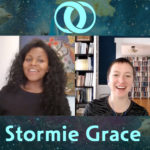
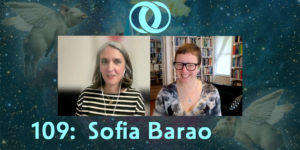
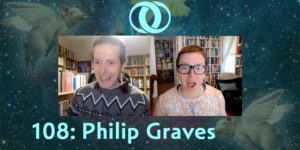
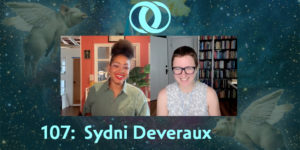
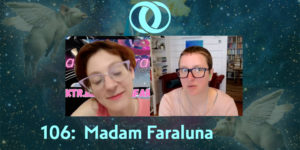
1 Comment
[…] 04:33 – If Rose could bring only three books to a deserted island, what would they be? Dane Rudhyar’s An Astrological Triptych is first on the list, because it’s succinct and satisfying. Also, this text was the one that first helped her make sense of the houses. (And to hear more on Rudhyar, lend your ears to Episode 15, Lars Panaro: Scattering Karmic Stardust!) […]
Comments are closed for this article!